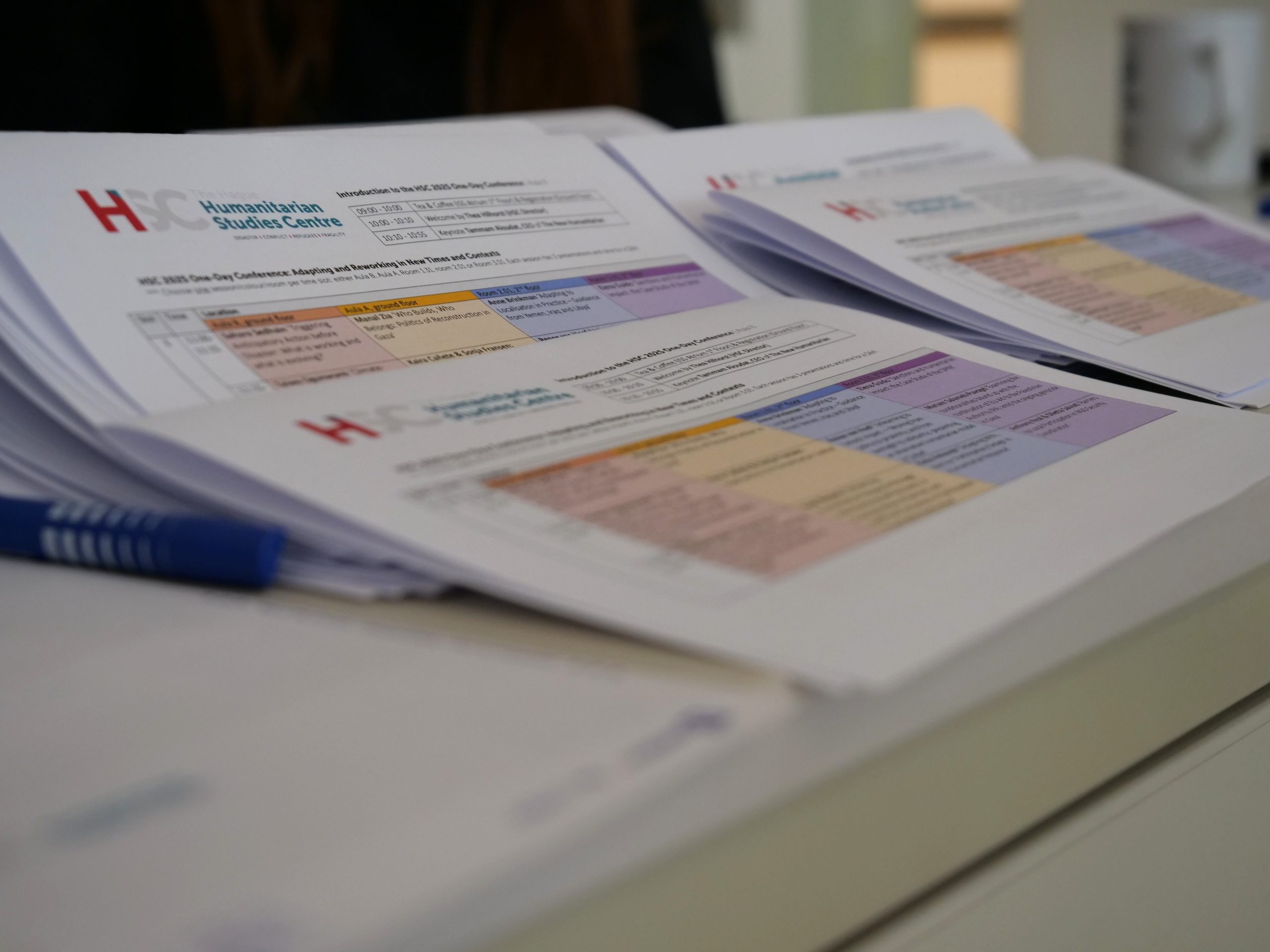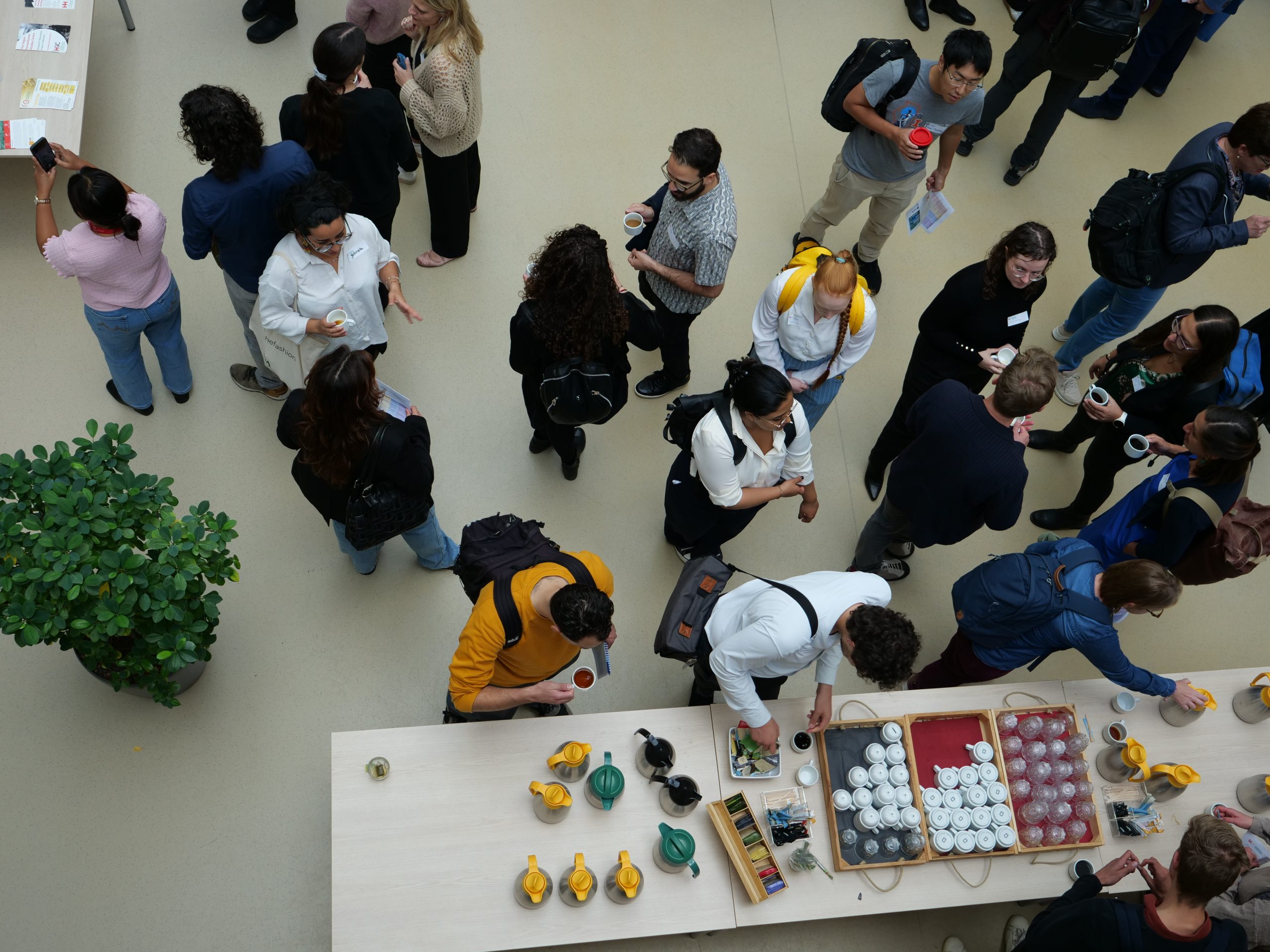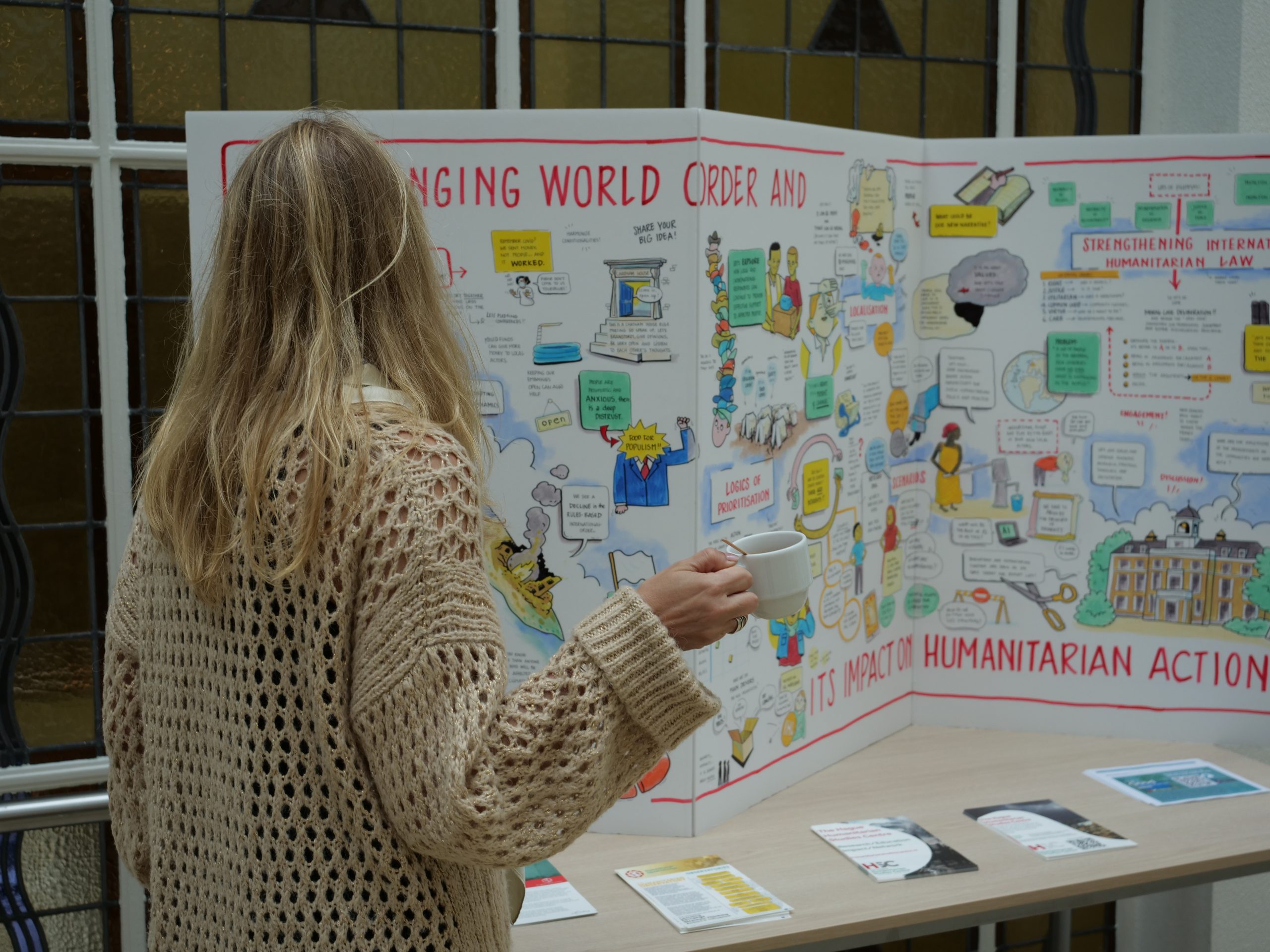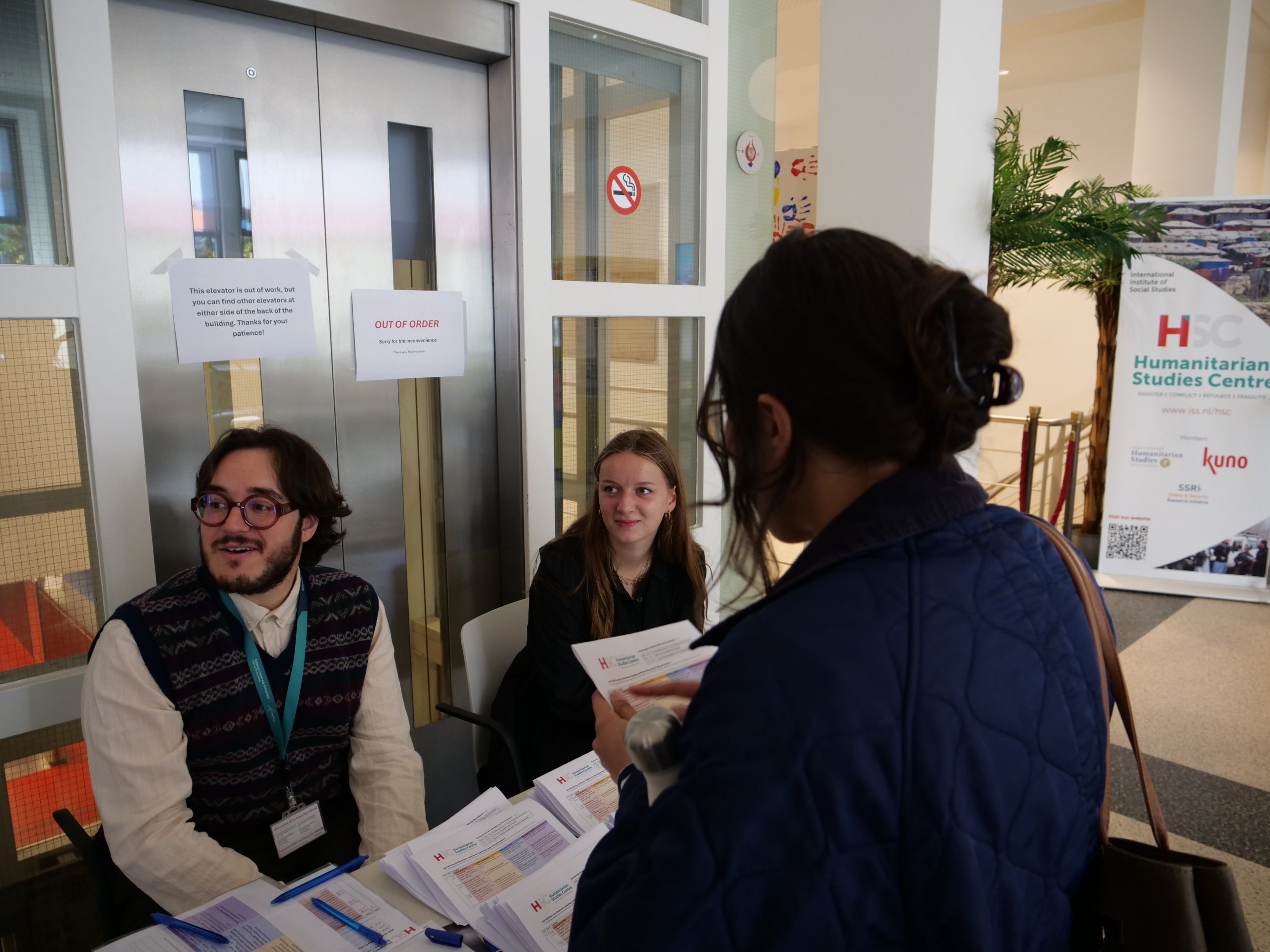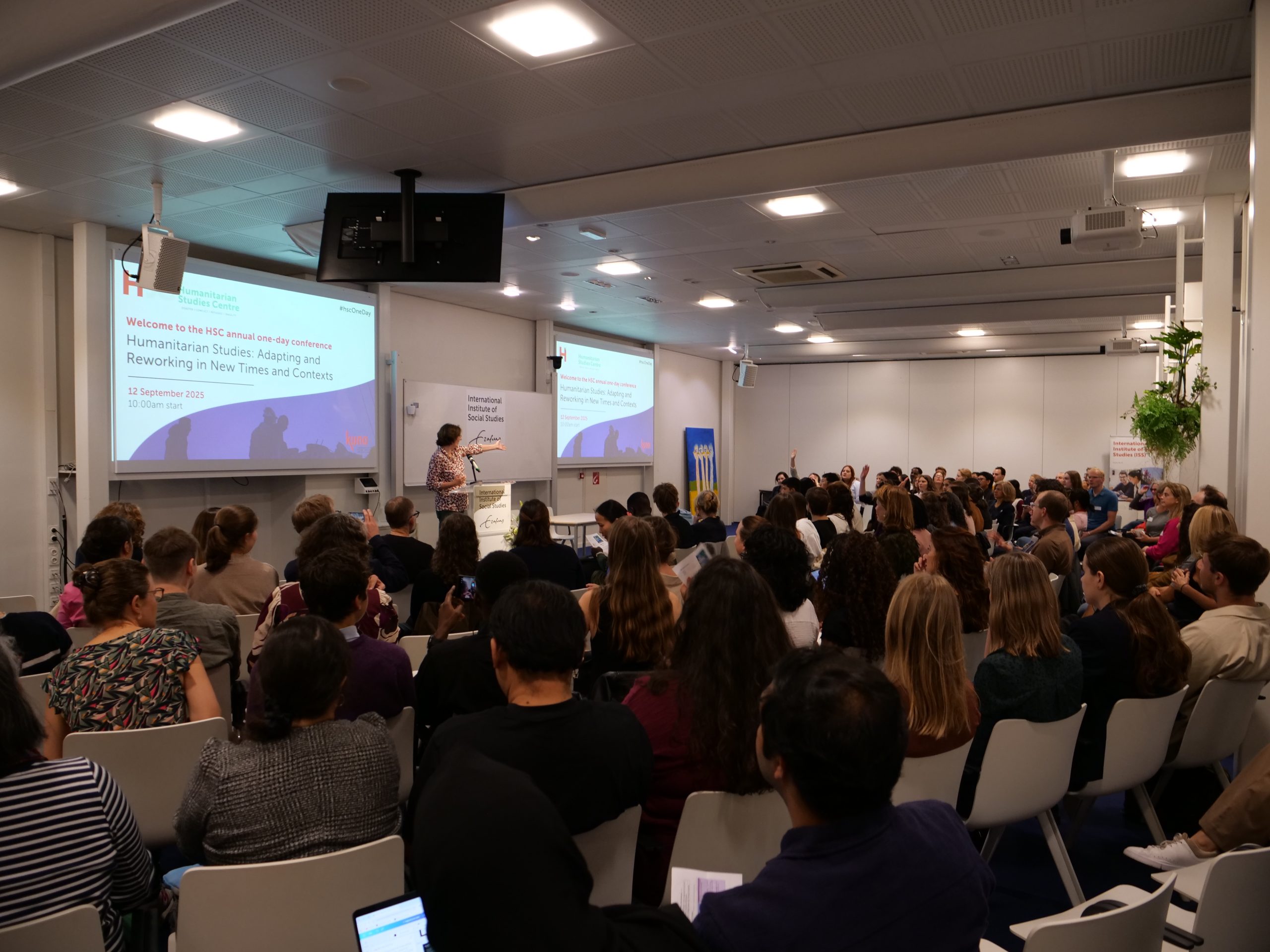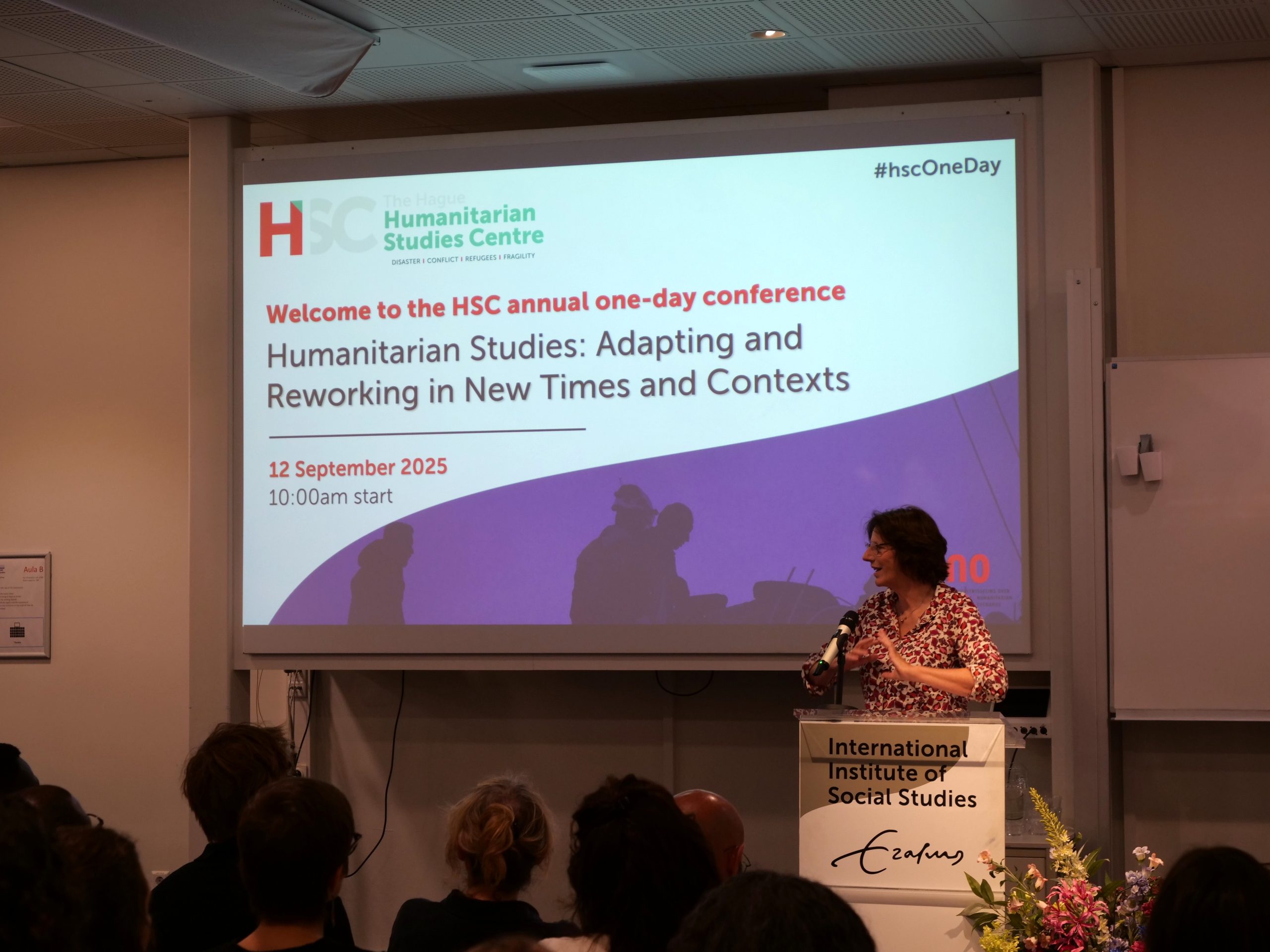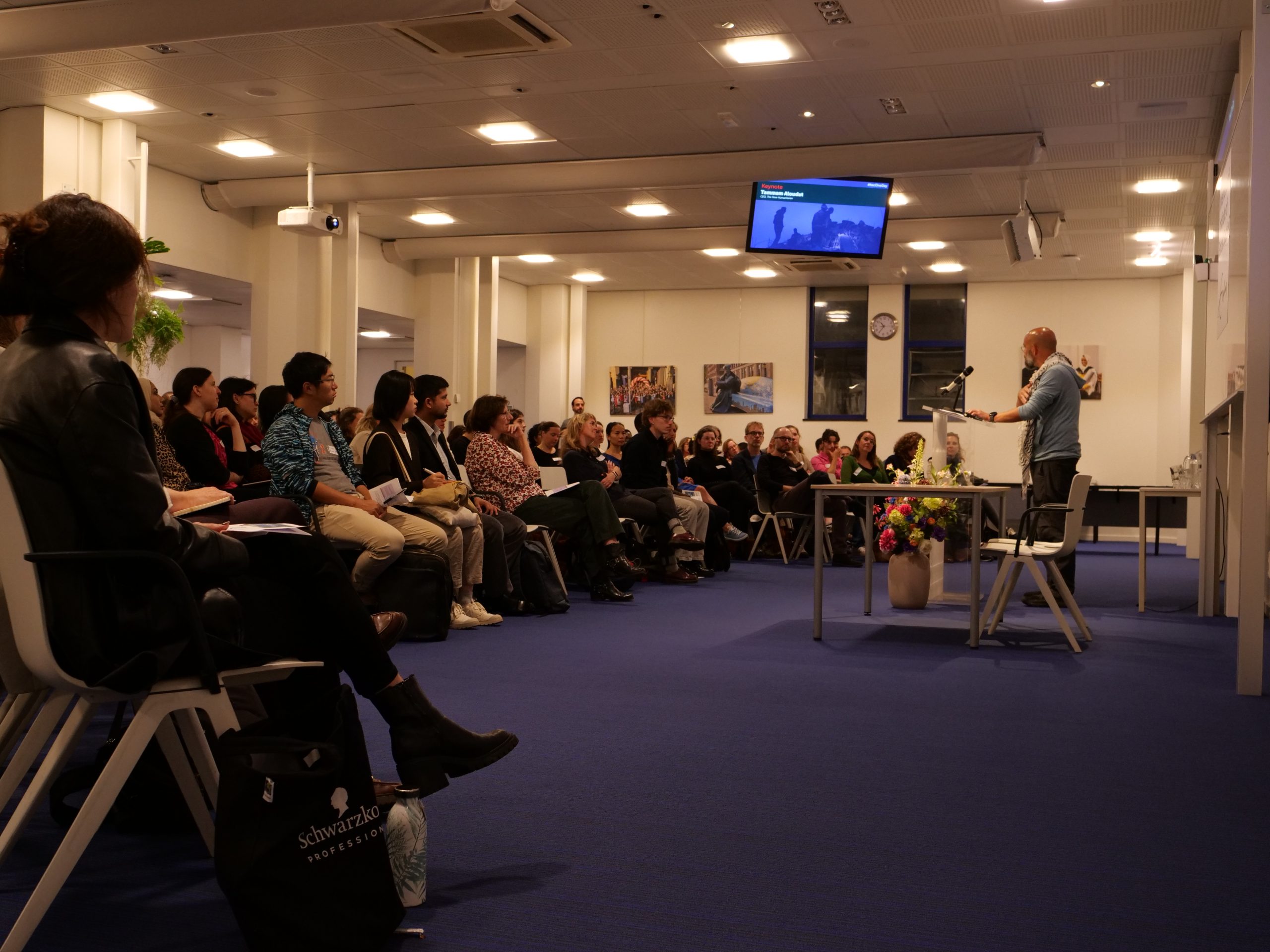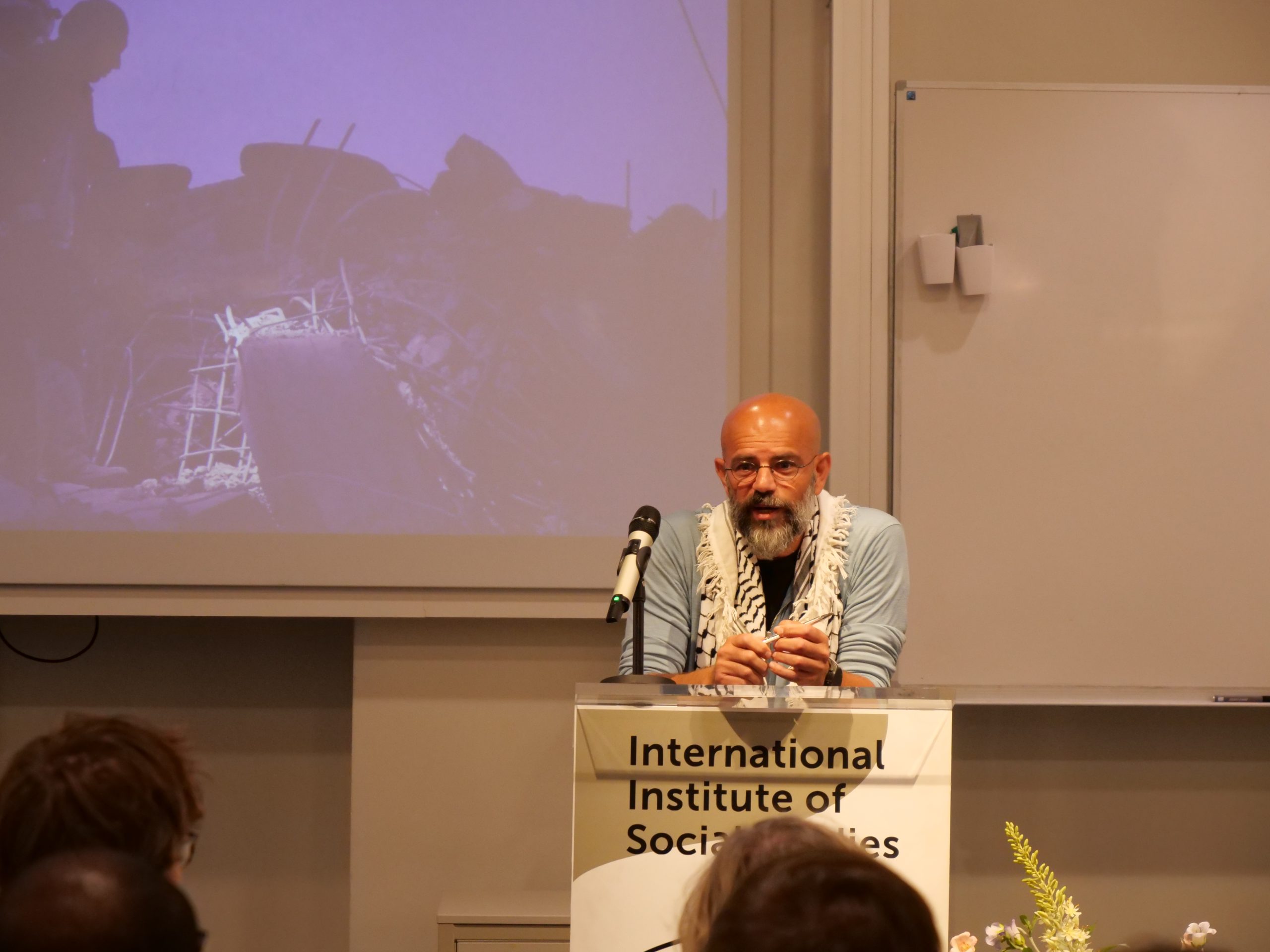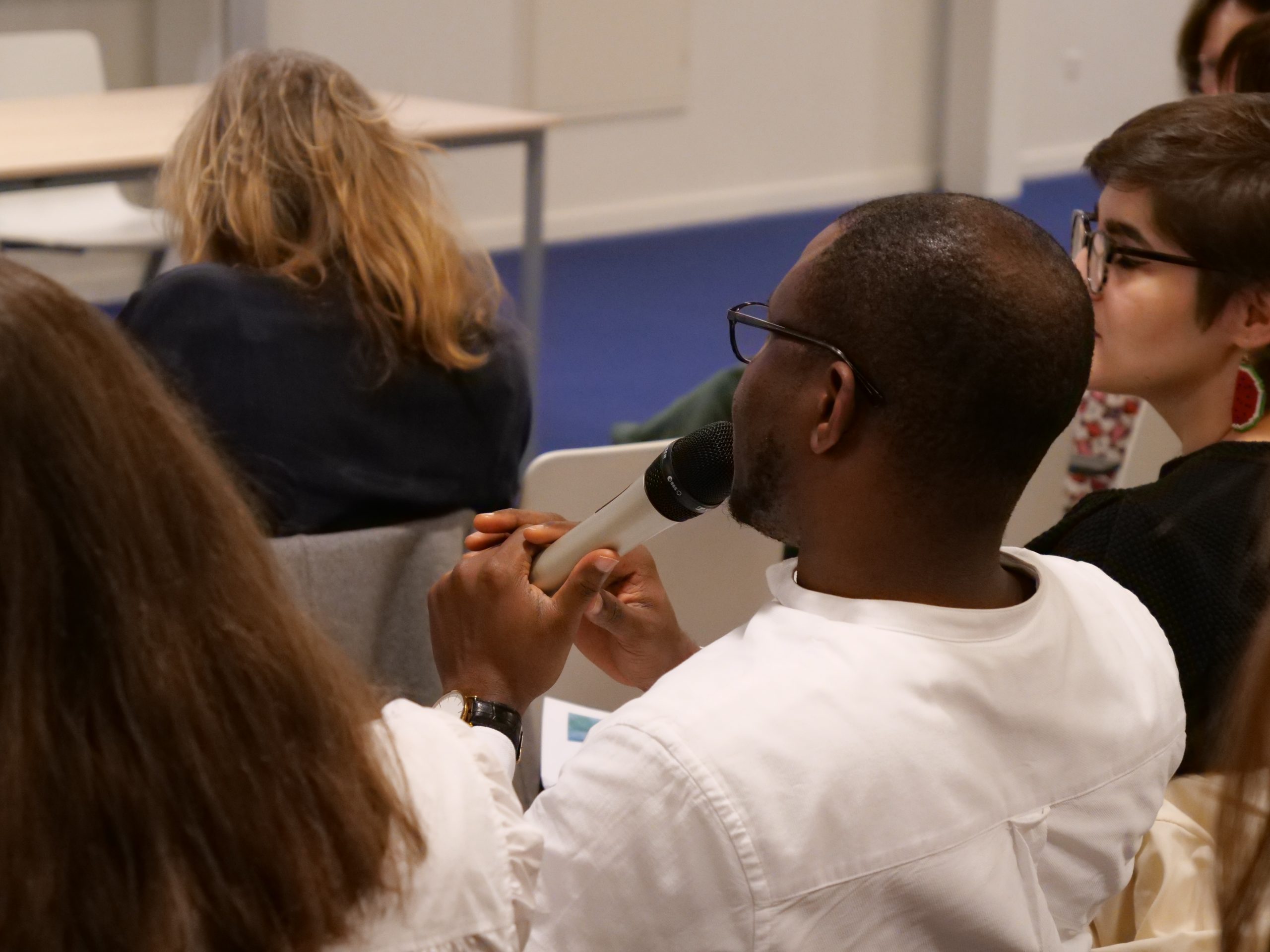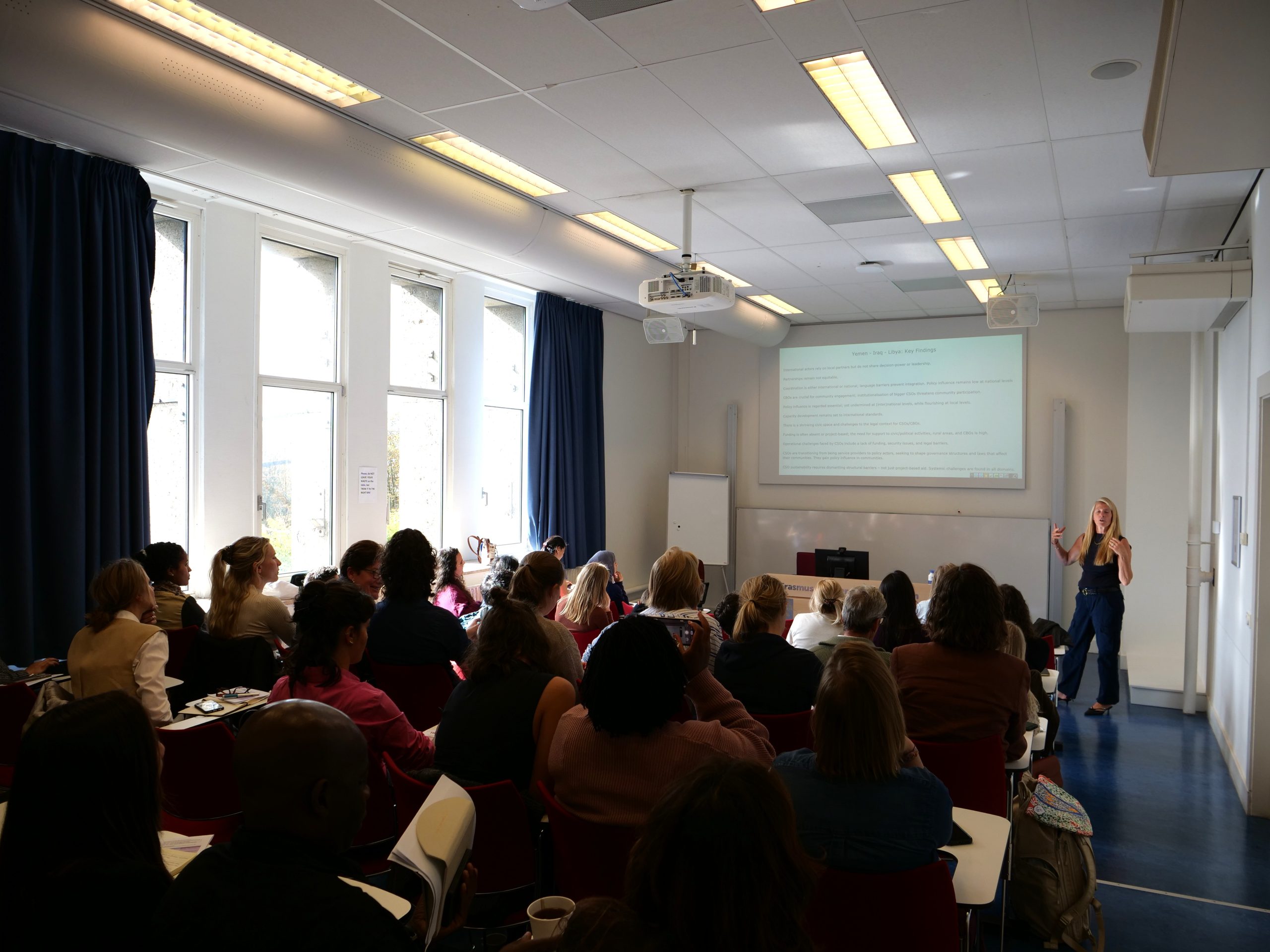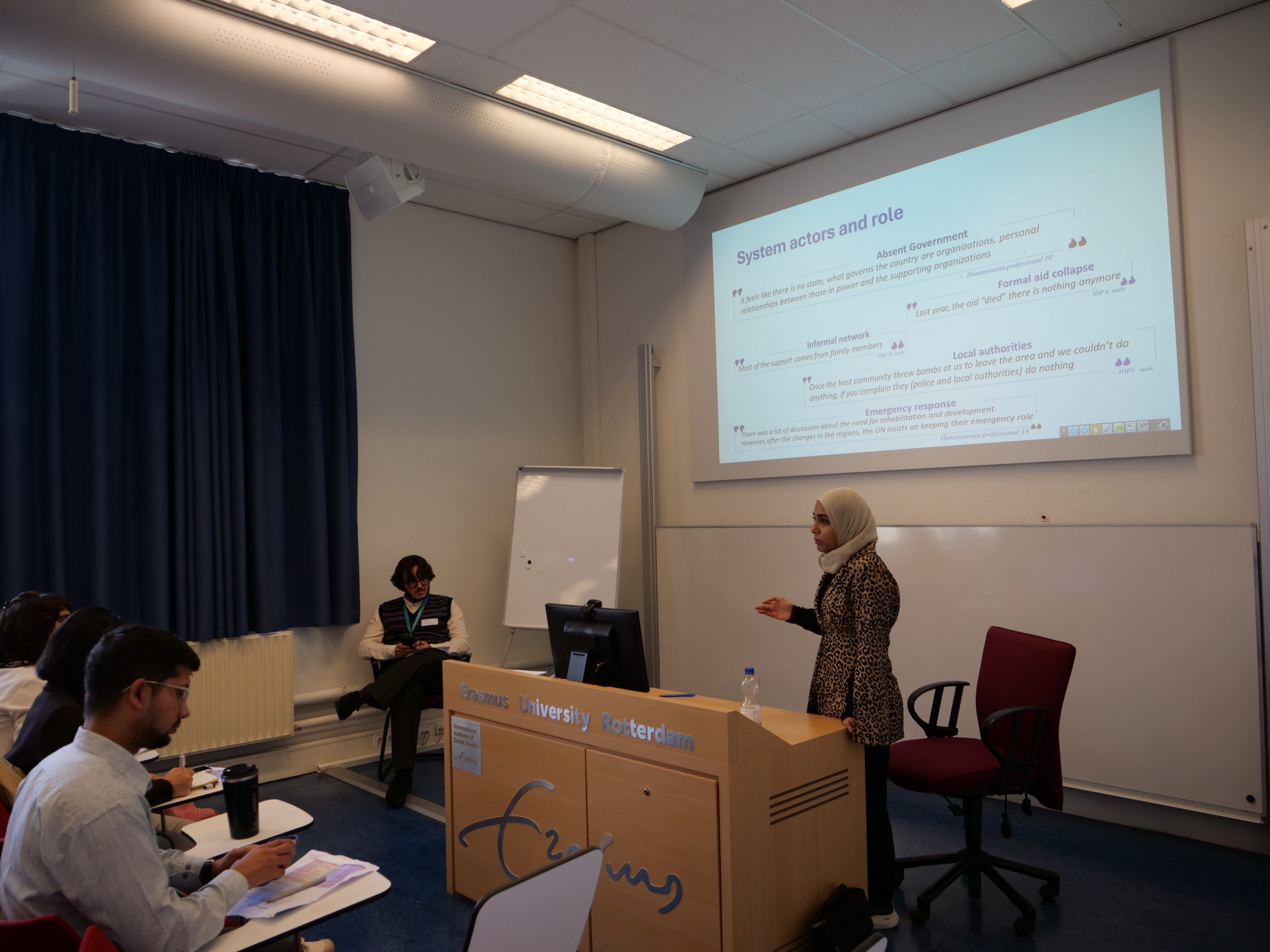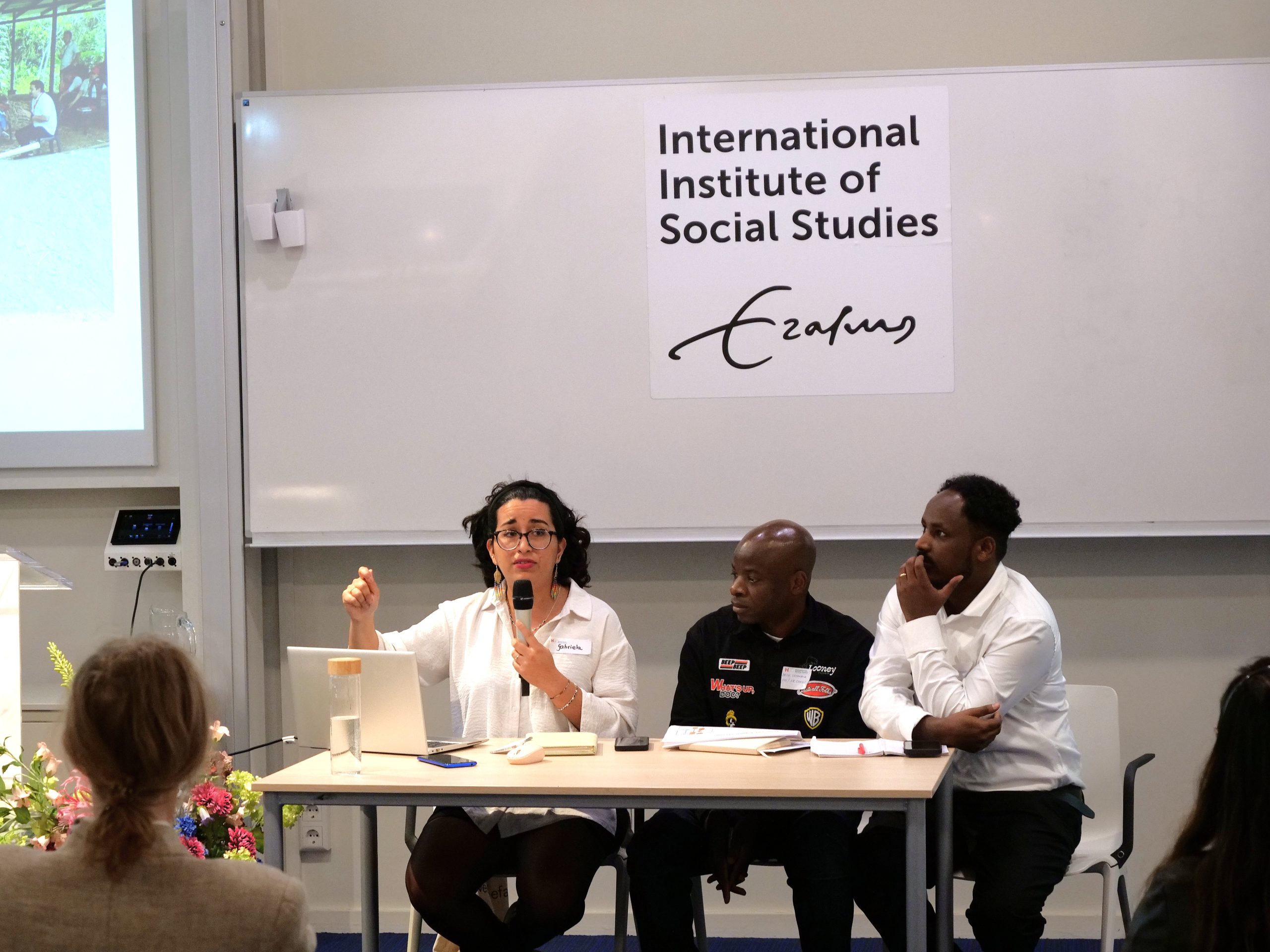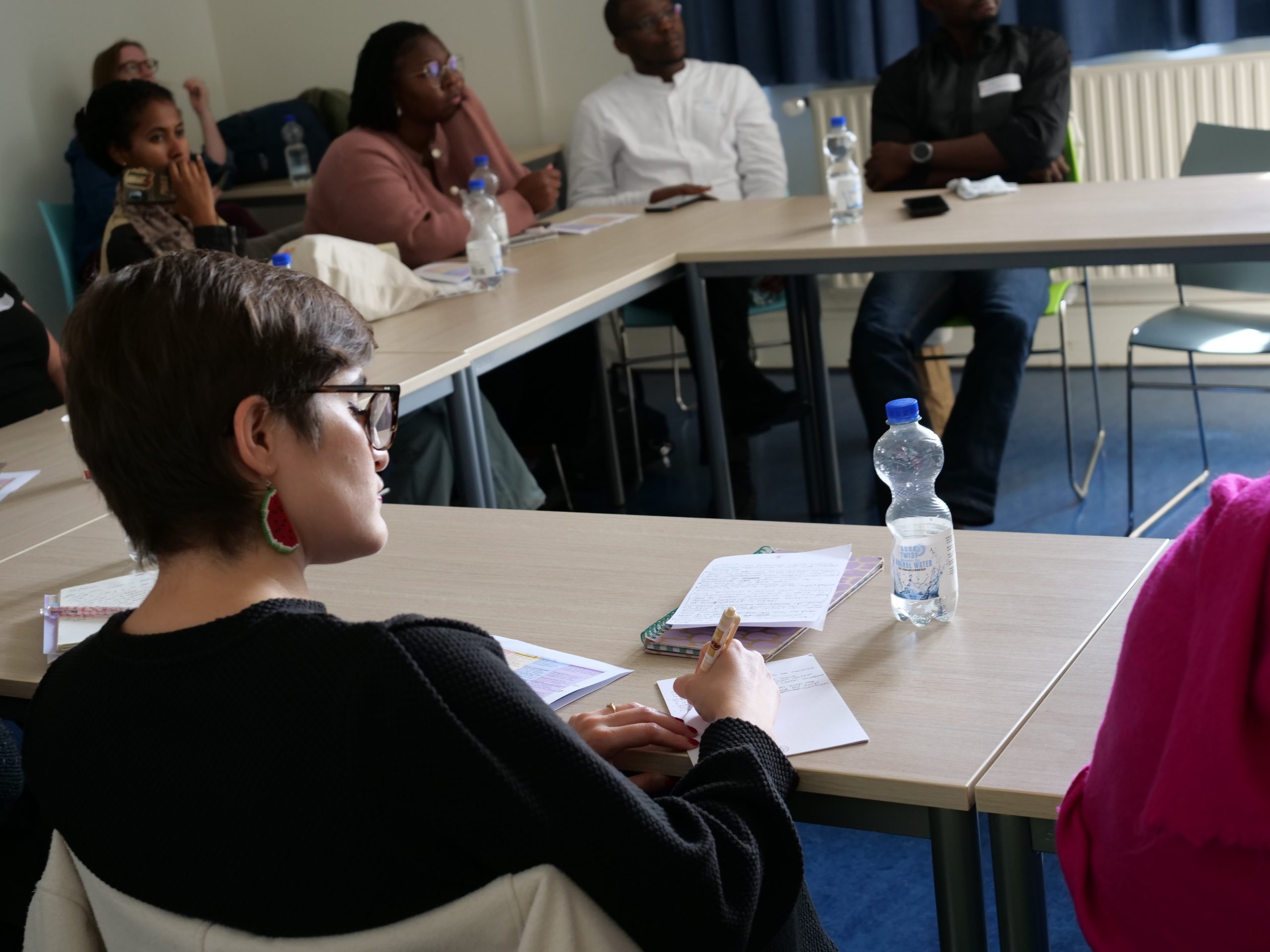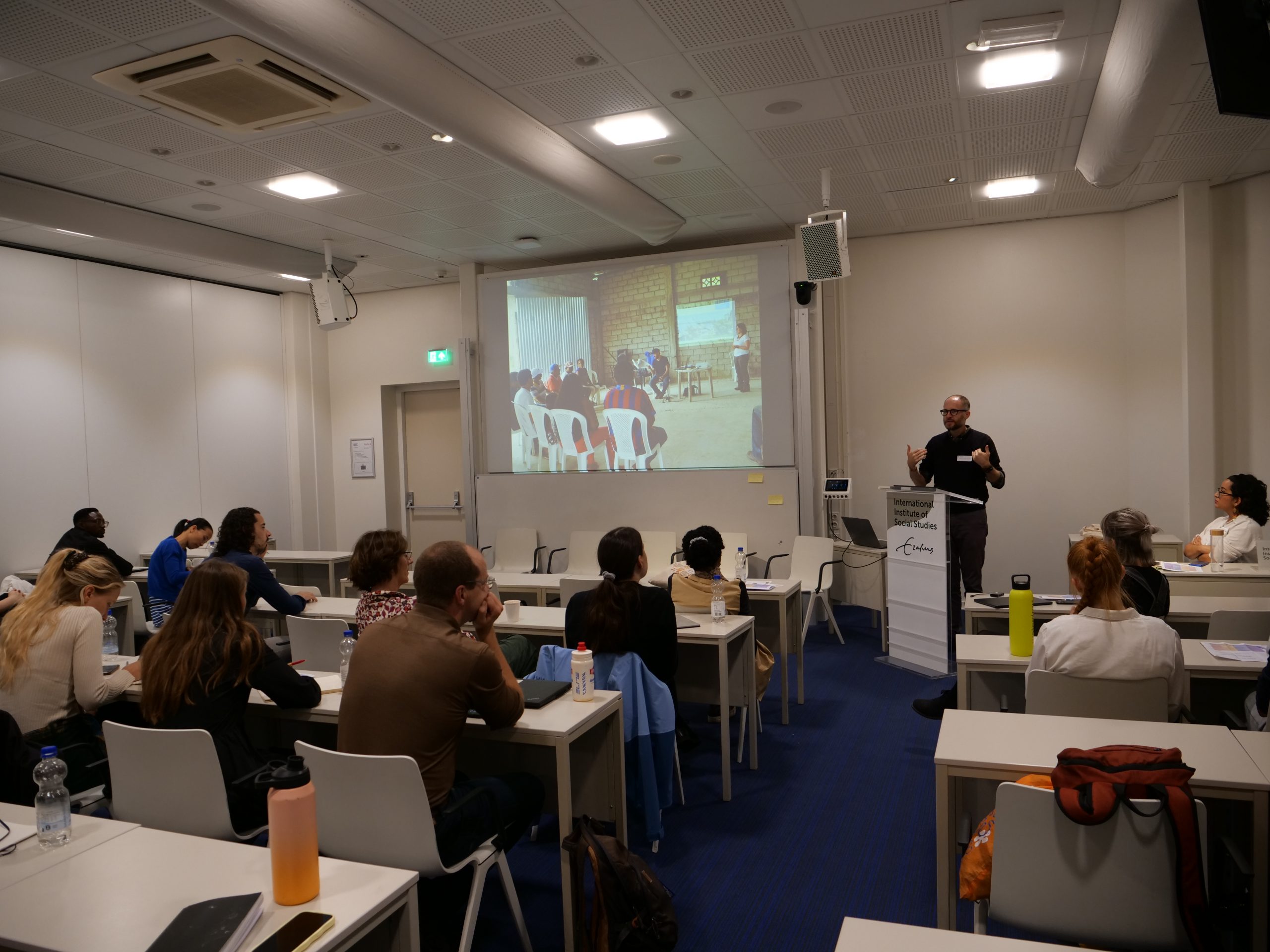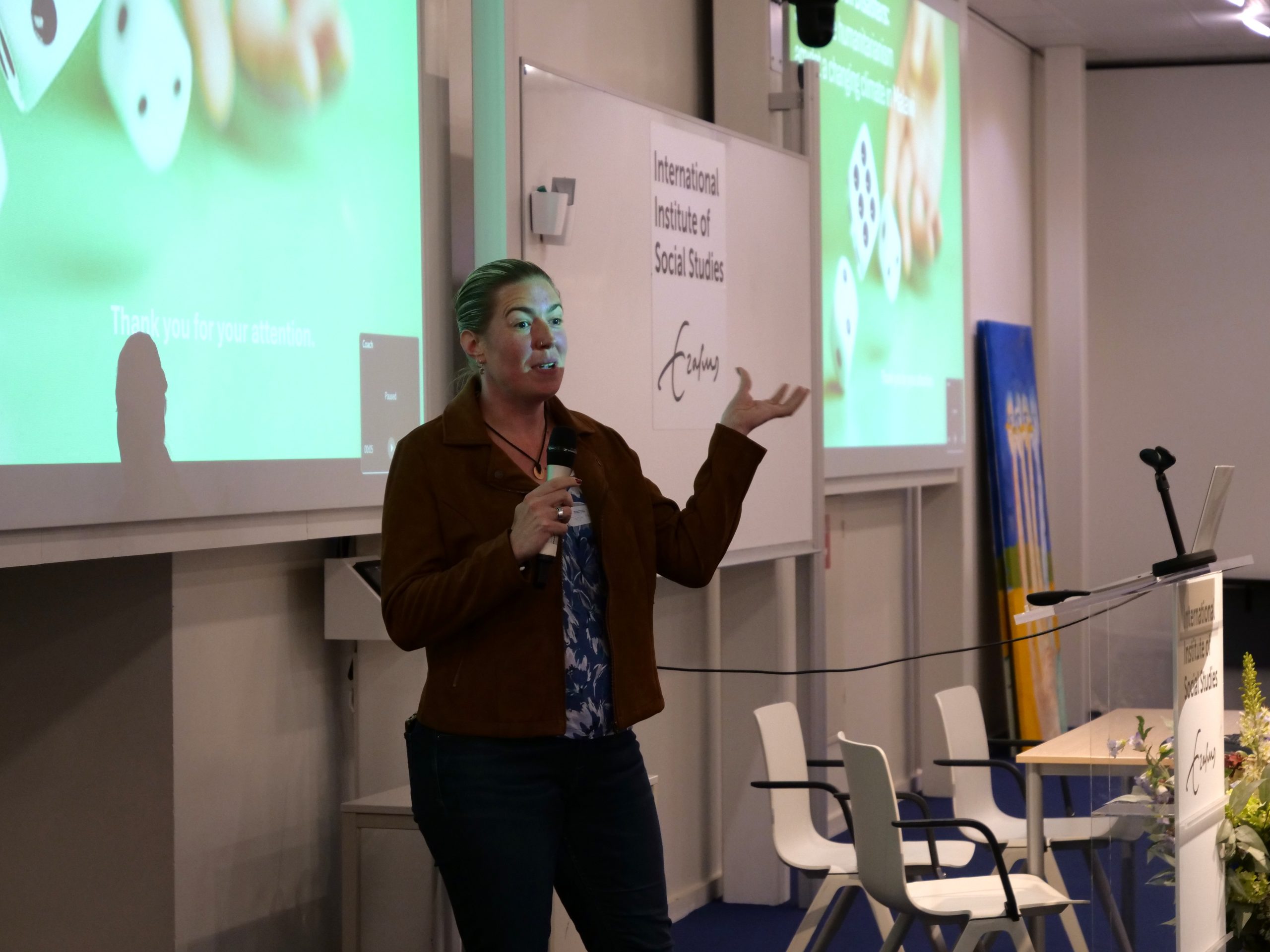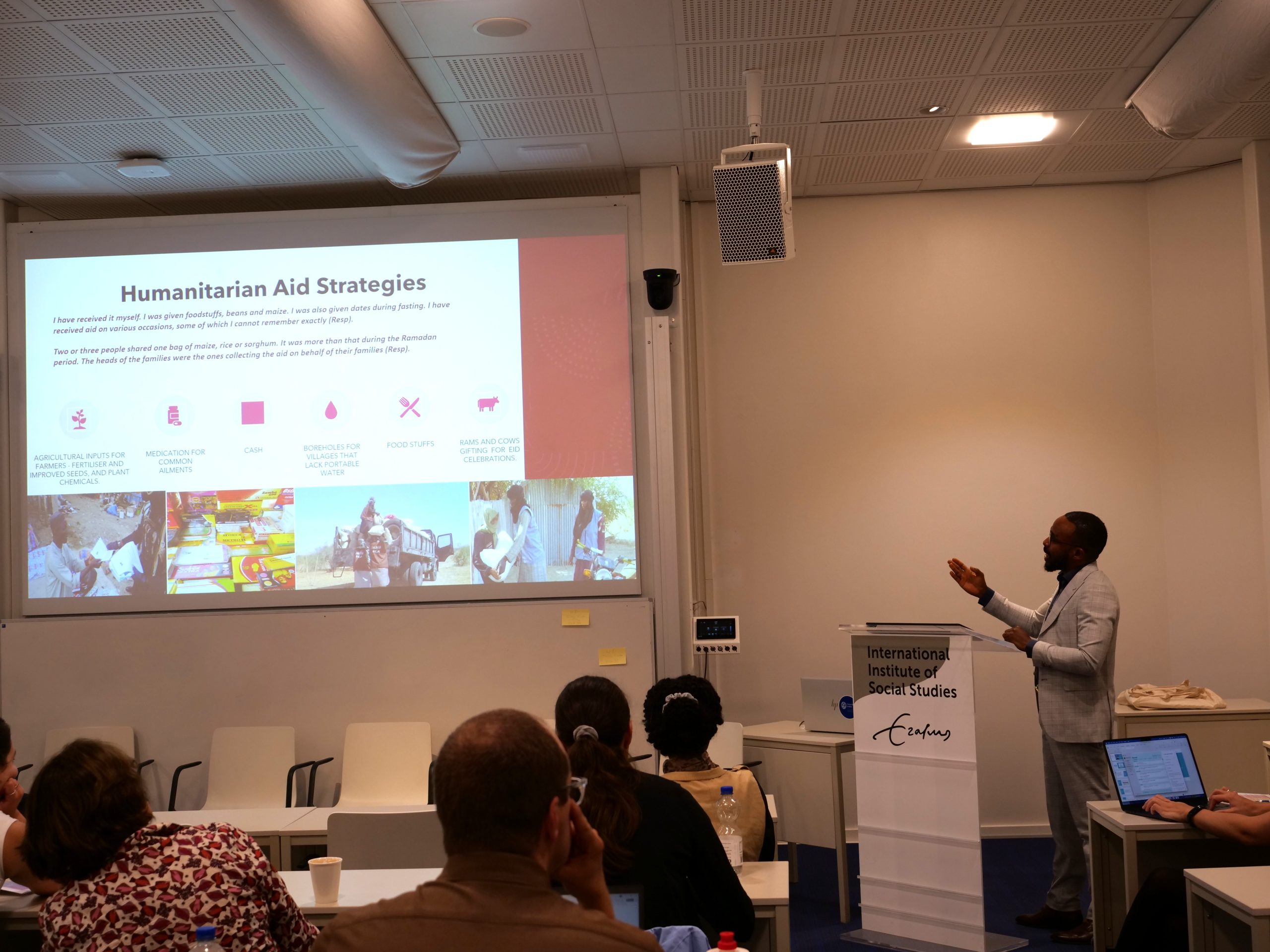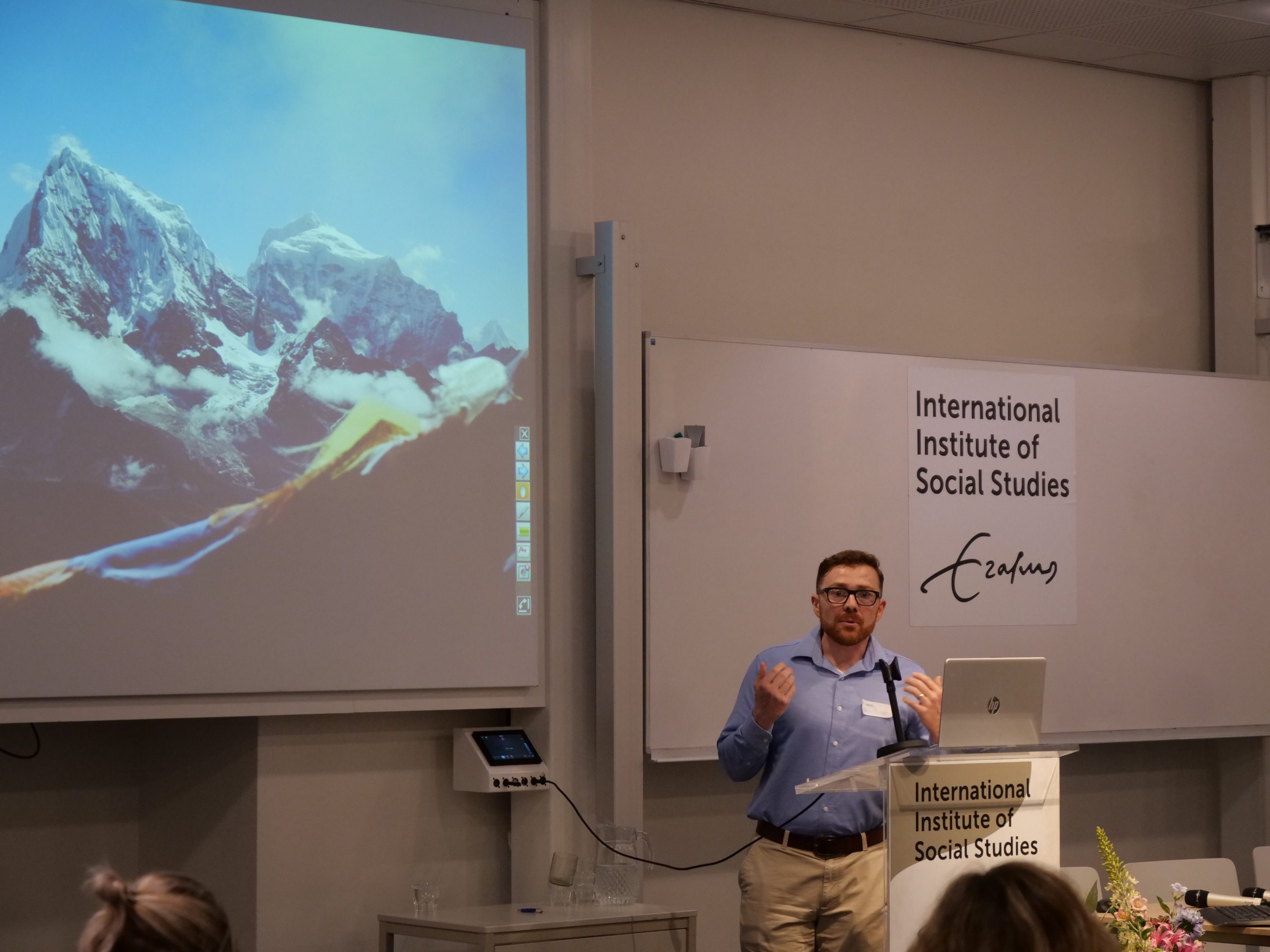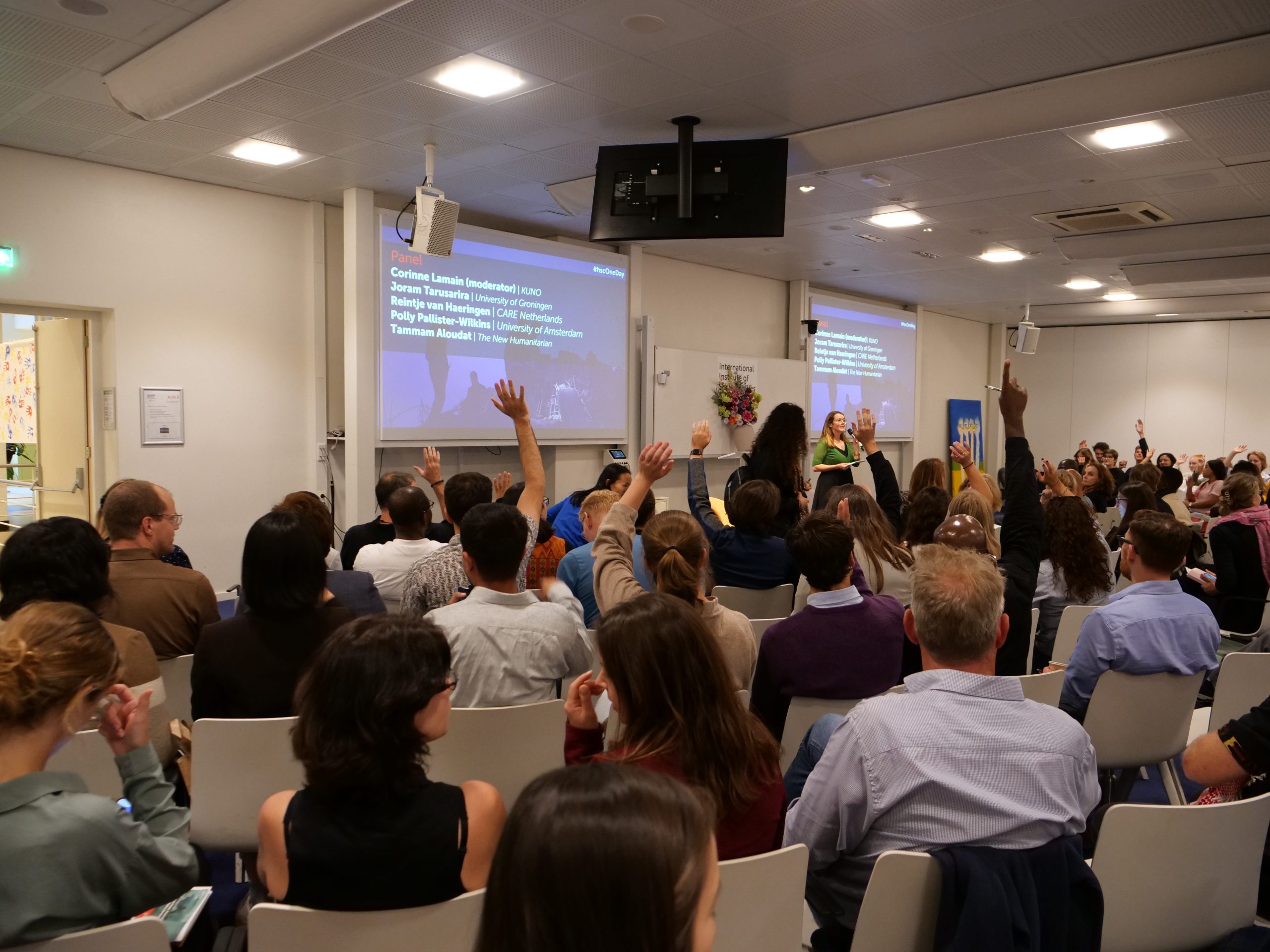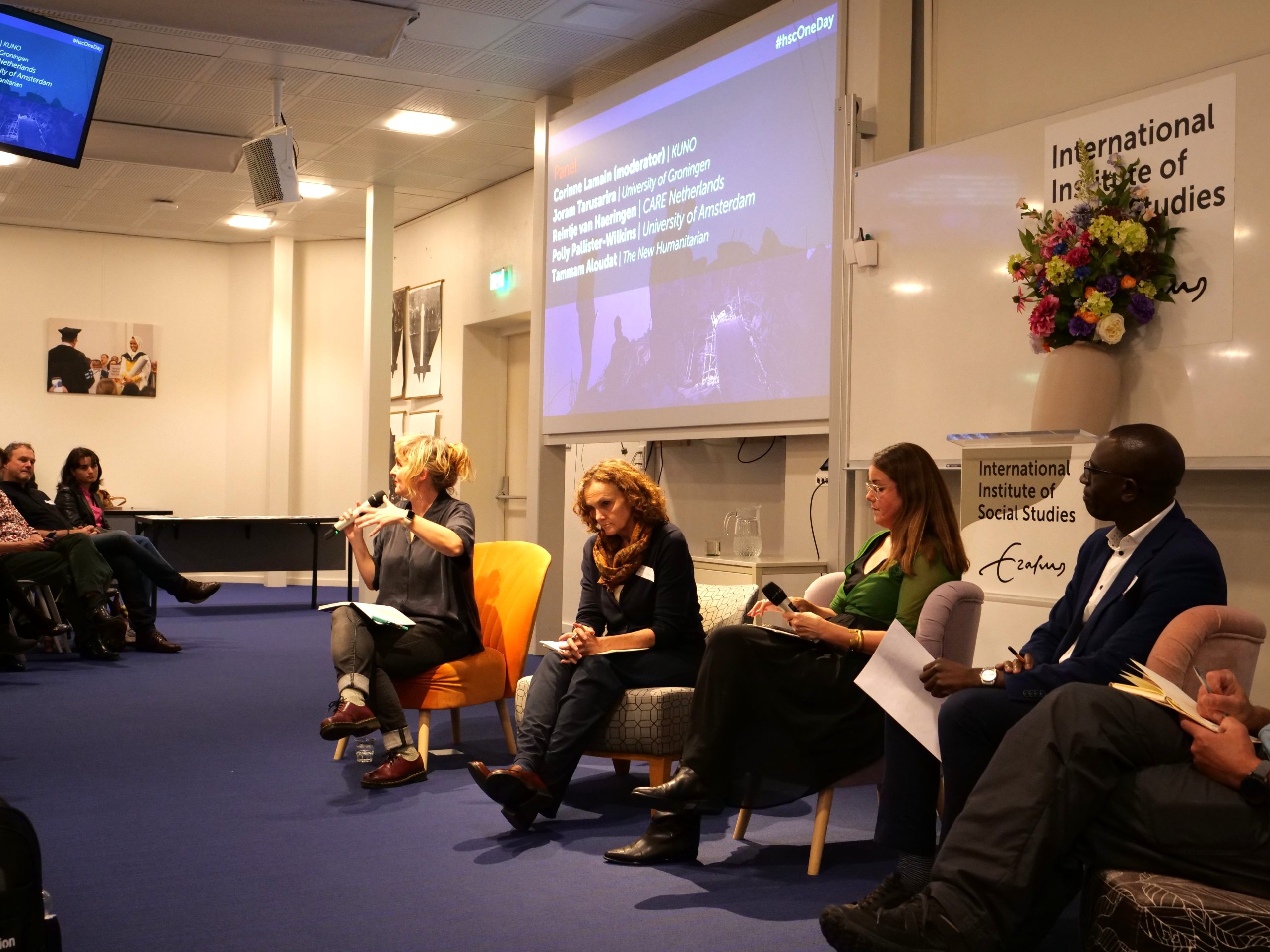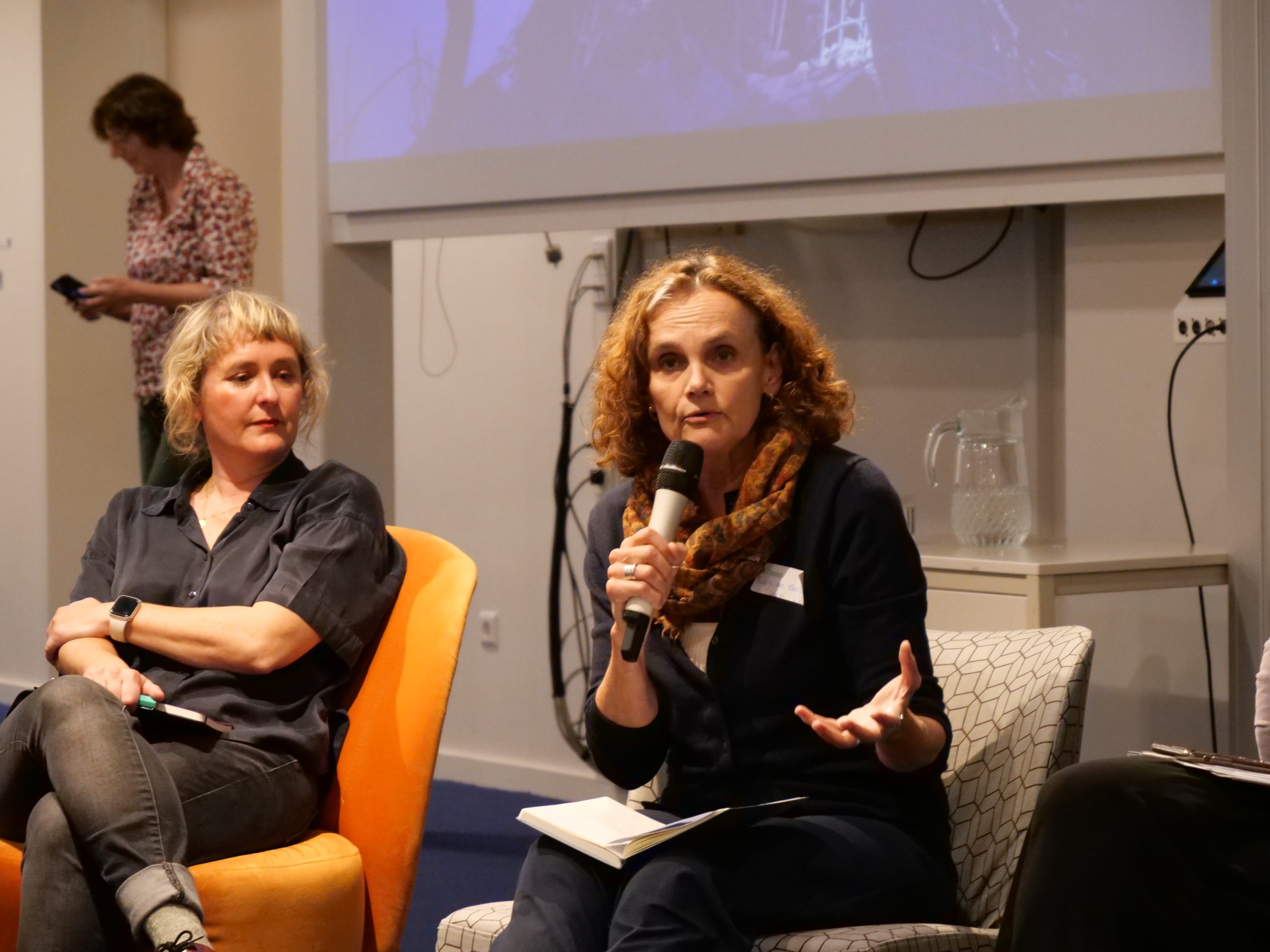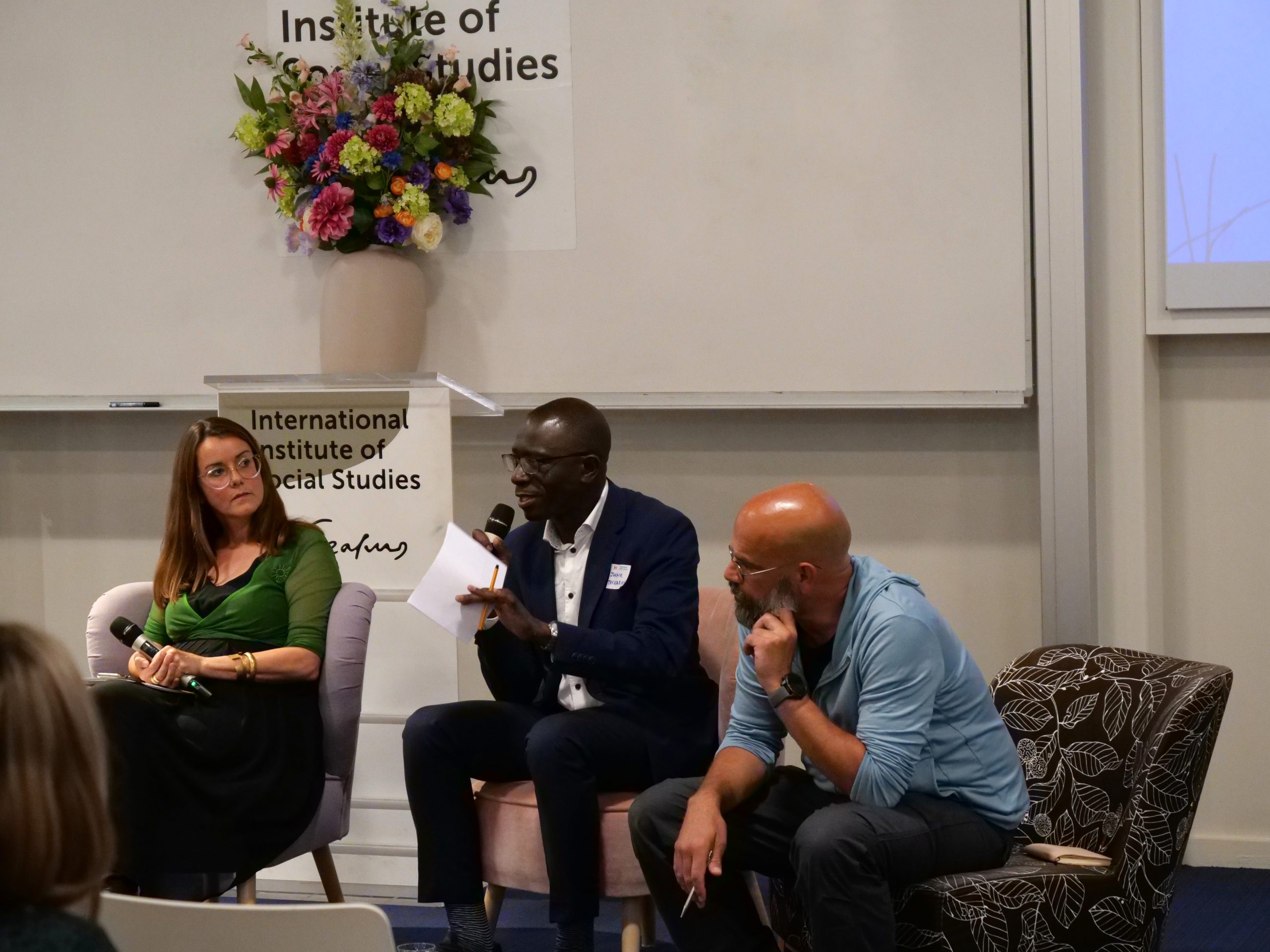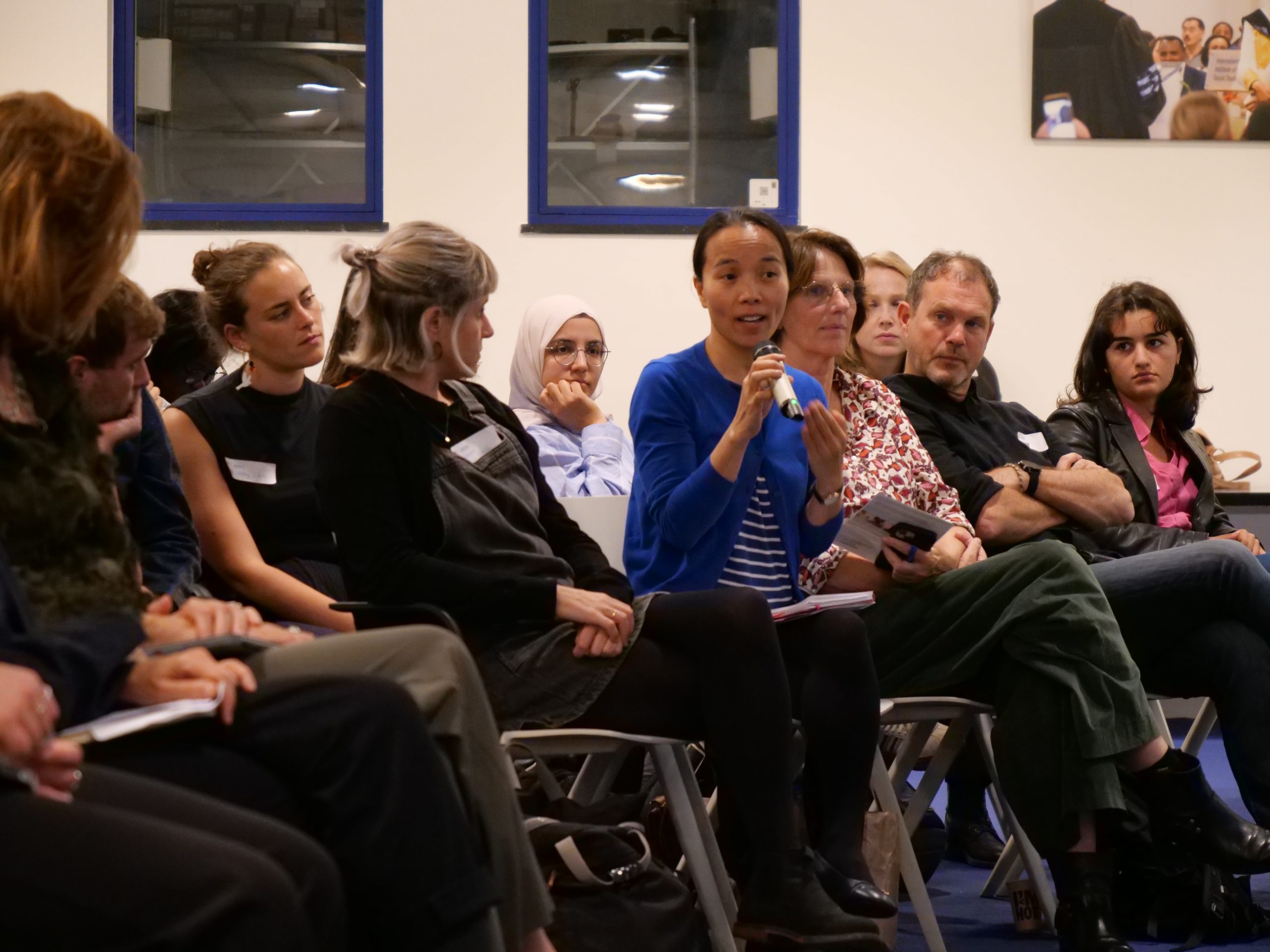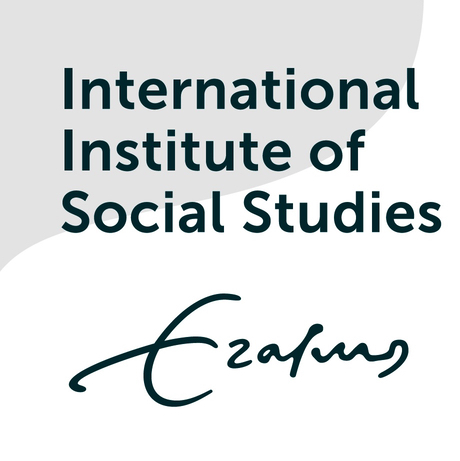HSC 2025 One-Day Conference
‘Humanitarian Studies: Adapting and Reworking in New Times and Contexts’
The Hague Humanitarian Studies Centre convened around 150 practitioners and researchers on Friday 12 September for the second HSC One-Day Conference, supported by KUNO: Platform for Humanitarian Knowledge Exchange in the Netherlands. The theme this year looked at ‘Humanitarian Studies: Adapting and Reworking in New Times and Contexts’ and the conference was held at the International Institute of Social Studies in The Hague.
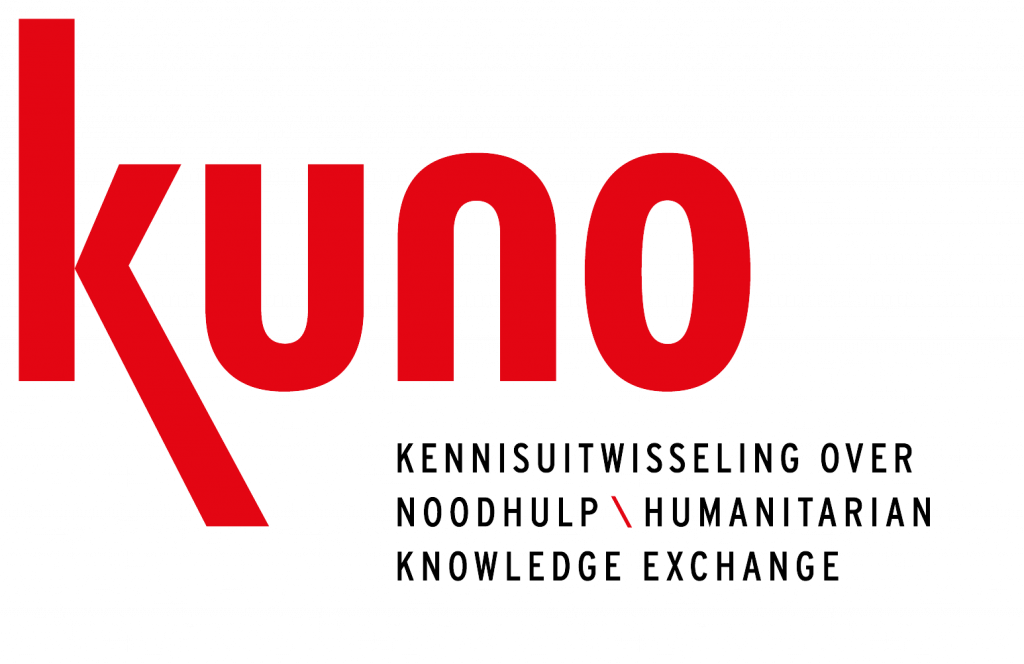
Global political currents are buffeting humanitarian action and humanitarian studies in multiple contexts across the world, with decisions taken in places like Washington severely affecting everyday humanitarian actors. For humanitarian actors and researchers, these new times require adapting, reworking and remixing of humanitarian activities to ensure adherence to principles like ‘do no harm’, and continuing to work in vulnerable and fragile places. A major concern is the status of respecting and upholding International Humanitarian Law, including the protection of medical and humanitarian workers.
At the same time, humanitarianism has a strong focus on localised responses, with contextual actors and affected populations being required to take more and more of the brunt of funding cuts, and more and more of the tasks associated with humanitarian programming. The questions that were approached during this conference were: How can humanitarian studies adapt and remix within these new contexts? Where does power lie now, as the responsibilities and complications pile up? What is the role of academia/researchers in these challenging times? And how can we see the positive within a sea of negative headlines?
Over the course of three rounds of presentation sessions, attendees heard from 36 presenters from organisations and universities including the International Institute of Social Studies, Erasmus University Rotterdam, ZOA, INSO, Deltares, University of Twente, CHH-Lancet Commission on Health, Conflict and Forced Displacement and more. Following an introduction by HSC Director Professor Thea Hilhorst, the conference keynote was delivered by the CEO of The New Humanitarian, Tammam Aloudat. Dr. Aloudat’s keynote covered a range of topics around the role of humanitarians within an aid system that cannot hope to keep up with needs, the role of new organisations and humanitarian actors that do not ‘play by the Western rules’, and the impossibilities of having humanitarian aid when IHL and human rights laws are trampled at the same time by aid providing governments. He called for a more activist form of humanitarianism, that is based on solidarity and principles, and which is cognoscente of the ways in which (humanitarian) aid has been instrumentalised in the past and the baggage that it carries to this day.
After the keynote, we held the first round of morning presentations before heading into two more sessions in the afternoon. The whole group reconvened in the afternoon for the closing keynote panel moderated by Corinne Lamain, the coordinator of KUNO. The panel included:
- Polly Pallister-Wilkins, associate professor at the Faculty of Social and Behavioral Sciences, University of Amsterdam
- Joram Tarusarira, associate professor at the Faculty of Religion, Culture and Society, University of Groningen
- Reintje van Haeringen, CEO of CARE Netherlands
- Tammam Aloudat, CEO of The New Humanitarian
Session 1 presentations
Sahara Sedhain, ‘Triggering Anticipatory Action before Disaster: What is working and what is evolving?’
Manal Zia, ‘Who Builds, Who Belongs: Politics of Reconstruction in Gaza’
Taiwo Ogunwumi, ‘Climate-Induced Flood Risks and Displacement: A Rapid Flood Hazard Assessment of IDP Camps in Dikwa, Borno State, Nigeria’
Kaira Cañete & Sonja Fransen, ‘Approaches to Humanitarian Justice’
Garbhit Naik, ‘Designing a Serious Collaborative Learning Game for Flood-Resistant Housing Reconstruction in Nepal’
Isaac Besarra, ‘Enhancing Humanitarian Response through Understanding Self-Recovery: A Scoping Review of Barriers and Livelihood Outcomes in Post-Disaster Housing Reconstruction’
Anne Brinkman, ‘Adapting to Localisation in Practice – Guidance from Yemen, Iraq and Libya’
Elena Guido, ‘Sanctions and Humanitarian Impact: the Case Study of the DPRK’
Renee van Hoof, ‘Unlearning to Unlock Impact — Moving from policy to proximity, and from oversight to solidarity: presenting an alternative humanitarian model in Sudan’
Mariam Salameh-Puvogel, ‘Examining the conditionalities bound up with the continuation of EU aid to the Palestinian Authority (PA) amid the ongoing genocide in Gaza’
Kasia Antoszyk, ‘Designing With, Not For: Participatory Design in Humanitarian Response’
Anthony Neal & Diletta Salviati, ‘Barriers to Local Participation in NGO Security Coordination’
Session 2 presentations
Gabriela Villacis & Delu Lusambya, ‘Situating the role of the state as a humanitarian actor in four different humanitarian contexts: Bangladesh, Colombia, DRC, and Ethiopia (1)’
Alex Hordofa, ‘Situating the role of the state as a humanitarian actor in four different humanitarian contexts: Bangladesh, Colombia, DRC, and Ethiopia (2)’
Andrew Russo, ‘Disaster, Manic Kleptocracy, and Critical Theory: Future Possibilities in Uncertain Times’
Fatema Jafari, ‘When Aid Fails Women: The Politics of Ghost Schools and how political Corruption Undermined Women’s Education in Afghanistan’
Marije Balt, ‘The Politics of Migration: European Diplomats in Turkey’
Noor Lekkerkerker, ‘Adaptive digital engagement in contested humanitarian spaces’
Amrita Slach, ‘Neglected reality of displacement-resettlement in legacies of extractive industries: Case of Germany and India’
Farouzan Hosseini Moghaddam, ‘Between Borders and Bias: Experiences from Humanitarian Work with Afghan Refugees and Immigrants in the Iranian Context’
Sydney Cohee & Eleni Diker, ‘Mobility Justice: A framework and vision for reimagining the foreign aid regime’
Chimwemwe Salie Hara, ‘Social Protection and Social Cash Transfers in Humanitarian Governance in Africa: The Case of Malawi from 2015 to 2024′
Juel Helge Rye, ‘Beyond Literature: A Novel Framework for Categorizing Humanitarian Contexts through Complexity, risk and pace of change’
Alycke de Haan-Slomp, ‘Sharing experiences and lessons learned from a risk sharing pilot in humanitarian programming’
Session 3 presentations
Daniela Raad Sierra, ‘Learning from Child- and Youth-Led Climate Justice Mobilization: Reflections for Humanitarian Engagement’
Abriel Schieffelers, ‘Barriers and pathways to equitable risk sharing in Ukraine’
Tanja Hendriks, ‘Taking a Risk on Disasters: speculative humanitarianism amidst a changing climate in Malawi’
John Sunday Ojo, ‘Warfare by Welfare: Terrorist-Driven Humanitarianism, Insurgent Soft-Power, and the Shadow Aid Economies of ISWAP in the Lake Chad Basin’
Stephanie Rinaldi, ‘Normative States: Successes, Failures, and Lessons for Protection of Healthcare’
Santiago del Hierro, ‘Humanitarian situations and clueless architects: A case study in Ecuador’s post-earthquake response’
Sonja Fransen, ‘The determinants of climate risks for refugees: A global analysis’
Claudia Gonzalez Marrero, ‘Humanitarian Aid in Cuba: A Critique of Assistentialist Simulation as an Autocratic Reinforcement’
Awsan Bahattab, ‘Yemen’s Humanitarian System: Insights from Professionals and Displaced People on Governance Challenges, Local Realities, and Proposed Changes’
Tika Meijer, ‘Integrating Mental Health and Psychosocial Support and Peacebuilding: the humanitarian, development and peace nexus in practice’
Nazanin Zadeh-Cummings, ‘Ready for anything?: How humanitarians prepare for crisis’
Marcel Hazeu, ‘Humanitarian Crisis in the Amazon: Capitalist Expansion and State Intervention’
Contact
humanitarianstudiescentre@iss.nl
Visit the HSC
Based at the International Institute of Social Studies
Kortenaerkade 12
2518 AX The Hague
The Netherlands
Quick links
blank>

